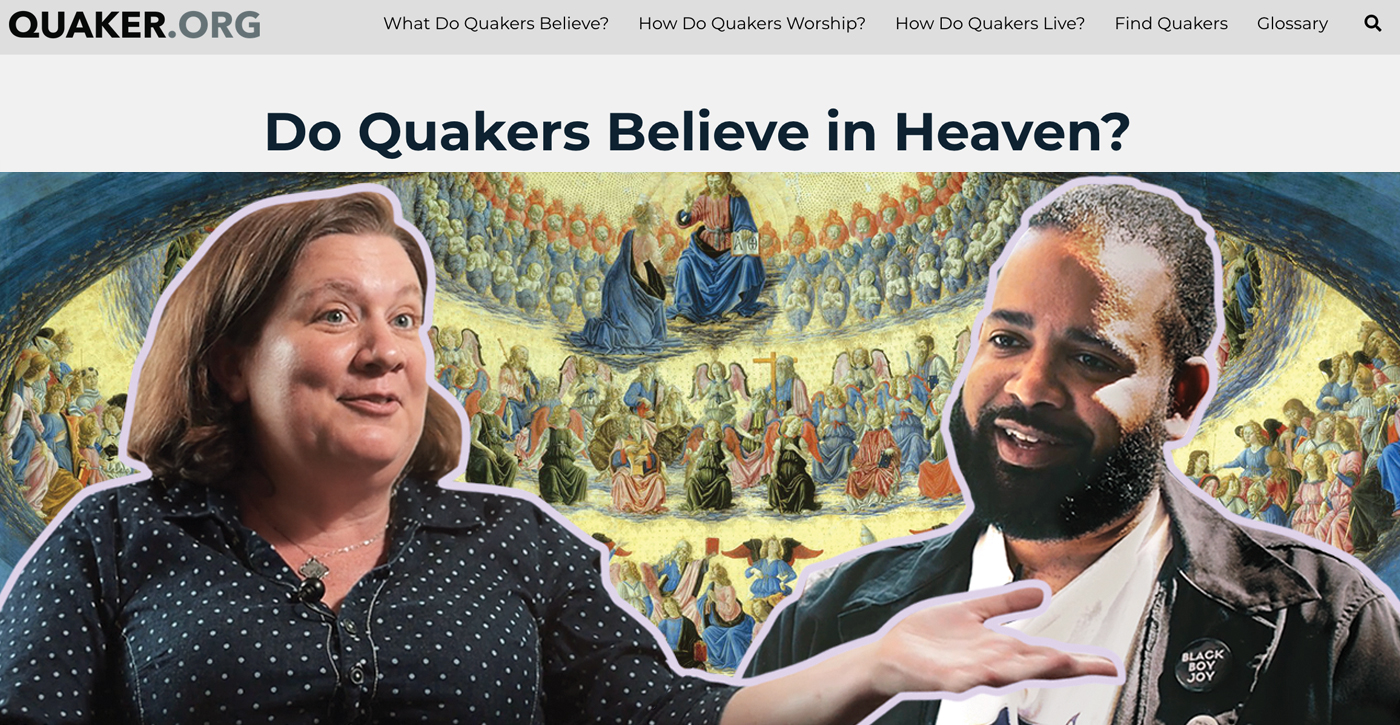I believe strongly in the value of telling people what they’ve meant to me. I recently wrote a thank-you note to an older Friend after spending a day with him, saying how much I valued his commitment to Quaker ideals and inner-city peace. He called me to say that I’d left out what he felt was his most important contribution: achieving peace through running a business ethically.
I keep a slim volume on my desk called Good Business: Ethics at Work. Published in 2000 by The Quakers and Business Group in the UK, it is a book of advices and queries. In the introduction, the editors write that “today many people, Quakers and others, are so dismayed at the unethical business practices they see around them that they have come to believe that business itself is unethical.” Often it feels as though we Friends, as a society, have given up trying to influence the world through ethical capitalism, instead hanging our hopes on vigorous activism, education, and healing professions.
What we do is noble: when we take our beliefs and transform them into public witness, we change lives for the better. Quaker activism is uncommonly strong and is still admired by those who share our goals of a peaceful and just world. But what we Quakers do not do much of anymore—grow wealth through principled business dealings—has become a hole in the fabric of our society. We rely on stretched-thin volunteers to manage our finances and can seem suspicious of business acumen. Our meetings are not good about appealing to Friends for money (though some programmed Quaker meetings and churches pass a collection plate on First Day). We can be generous in many ways, but we have not developed a communal ethos around money that guides us as strongly as our testimonies of simplicity, peace, integrity, community, and equality.
I see much to admire in the Friends who today are building and growing ethical businesses. What would it take to develop a Quaker economic testimony that lifted up ethical business success as desirable and right? Such a testimony, over time, would lead to a society with more monetary resources to support our activism and social justice work. It would increase our capacity to manage our institutions’ assets and finances with creativity and expertise. It would build networks that could connect young Friends with the knowledge, capital, and moral support necessary to create both economically successful and ethical enterprises.
The articles in this special issue of Friends Journal tackle the complexity of Friends’ relationships with money on many levels. Merry Stanford (“The Ministry of Giving Money,” p. 6) writes of coming to an understanding of the spiritual power of philanthropy in her life. In a piece that is sure to generate discussion, John Coleman (“When Quaker Process Fails,” p. 10) shares a bracing critique of the failings that led Philadelphia Yearly Meeting to a financial near-death experience.
Chiyo Moriuchi (“Doing Well and Doing Good,” p. 22) and Norval Reece, (“Learning from Quakers in Corporate America,” p. 9)—both of them successes in business—give positive examples of how spiritual strength can engender financial success and how the fruits of ethical business (money and knowledge) can be used to strengthen and revitalize our spiritual communities.
In this month’s Friends Journal book club installment, we interview the author of the bestselling book The Man Who Quit Money. We hope you enjoy it and join us in a discussion of the book and the topic on our website, www.friendsjournal.org.






I was reading “Ten Most Common Mistakes Made by New Church Starts” and came across this passage which made me thing of the recent discussions I’ve heard and articles I’ve read (primarily in Friends Journal, see especially Merry Stanford’s excellent “The Ministry of Giving Money”) about Friends and money.
Baskets in the back of the room don’t cut it. They send the wrong message to the person looking for a serious place to their[sic] money. Baskets in the rear scream, “The way we handle money isn’t important.” Putting baskets in the back doesn’t teach people how to handle their money. If you want serious givers to give … take an offering; and don’t use baskets in the back of the room.
Hmmm, baskets in the back of the room — sounds like many Friends meetings I know.